Qld racing watchdog releases disturbing 2024 greyhound doping, deaths data
Seven cases of greyhound doping in the past month and disturbing data showing 18 dogs died on Queensland tracks this year, have triggered outrage from animal welfare groups ahead of the state’s newest $39m track opening. SEE THE DETAILS
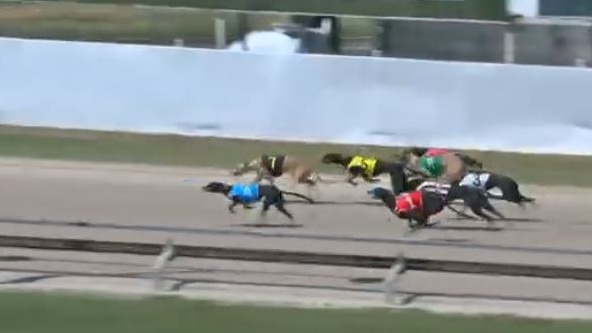
Entertainment
Don't miss out on the headlines from Entertainment. Followed categories will be added to My News.
Animal welfare advocates are calling for tougher penalties for greyhound doping after Queensland Racing Integrity Commission released alarming details of seven cases in the past month.
The cases include 10 doping events at tracks including Capalaba, Ipswich and Rockhampton, between October 1 and November 4 with some trainers fined twice for separate incidents in the one month.
The QRIC data coincides with the release of annual statistics showing a disturbing 122 greyhounds died on the nation’s tracks this year, with 18 of those in Queensland.
An astounding 1704 greyhounds were injured on Queensland tracks this year with 289 suffering major injuries, according to data from the Coalition for the Protection of Greyhounds.
The repeated doping and the relatively lenient penalties sparked outrage from animal welfare groups including AnimalKIND, which has called for the industry to be cleaned up before racing starts at Ipswich’s new $39 million The Q venue next year.
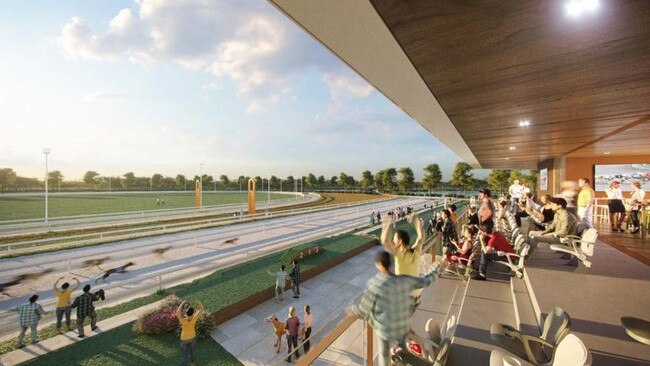
One of the highest penalties was meted out to Chuwar trainer Lawrence Topping, who was found guilty of doping charges twice within the four-week period.
In the first case, stewards fined him $1500 after his dog, Burrum Rose, tested positive for the prohibited substance gabapentin in a post-race sample after the greyhound’s win at the Brisbane Greyhound Racing Club on August 7.
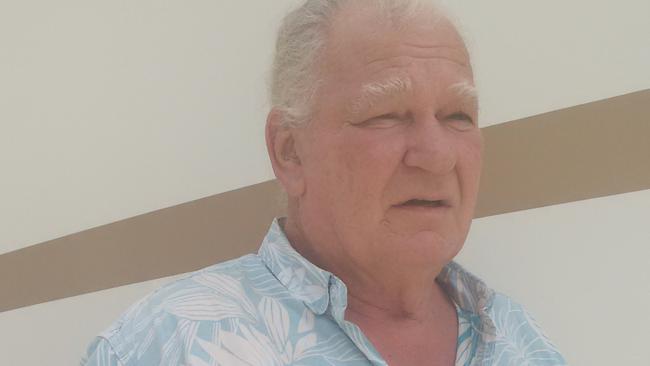
Topping, who has been involved in the greyhound industry for 15 years, pleaded guilty to using the drug, a common medication for animal pain management but banned for racing.
Burrum Rose was disqualified from its first-place finish and all prize money was ordered to be returned to Racing Queensland.
Having been found guilty on October 1, Topping had his licence suspended for four months on November 4, after pleading guilty to doping another dog, Boss Lady, using cobalt on September 12 also at the Ipswich Track.
Boss Lady was disqualified from its first-place finish and all prize money ordered to be returned.
Both the Racing Science Centre and Racing Analytical Services Limited confirmed cobalt in Boss Lady’s system.
Topping explained that the positive result was due to the inadvertent feeding of contaminated kibble, leading to the substance entering the dog’s system.
It was noted that Topping had a prior breach of a similar rule in 2018.
Rockhampton trainer Christine Pollard was handed a four-month licence suspension along with a $1,000 fine after using arsenic to make her greyhound Bossy Miss Bliss run faster at the Rockhampton Greyhound Racing Club on July 24.
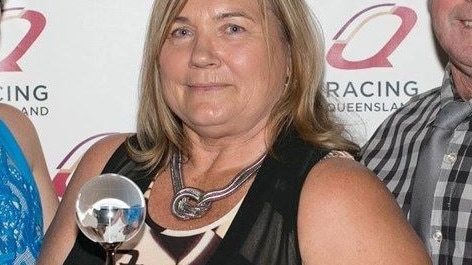
Despite Pollard’s plea of not guilty and her extensive experience of 40 years in the industry without prior similar breaches, the stewards found her guilty under Greyhounds Australasia Rules 141(1)(a).
Both the suspension and the fine were wholly suspended contingent on no further breaches.
Another 30-year greyhound racing veteran Shane Ellis was charged with three counts of doping under Greyhounds Australasia Rules after dexamethasone was detected in his greyhound post-race samples.
Ellis pleaded guilty to all three charges, acknowledging the presence of the drug in Brother’s Keeper’s system following its wins at Capalaba on August 4, Brisbane on August 12, and Ipswich on August 17.
Ellis had no prior breaches of a similar nature, and stewards noted he had not been given the opportunity to amend practices between the second and third positive tests.
For the first charge, Ellis was fined $1500, with $750 suspended for 12 months, contingent on no further breaches.
No penalty was imposed for the second and third charges. However, all three of Brother’s Keeper’s race results were overturned, with the greyhound disqualified from first-place finishes with all prize money to be returned to Racing Queensland.
The harshest penalty was given to Ferny Hills greyhound trainer Myra Griffiths, who pleaded not guilty to three charges but was banned from training for 12 months.
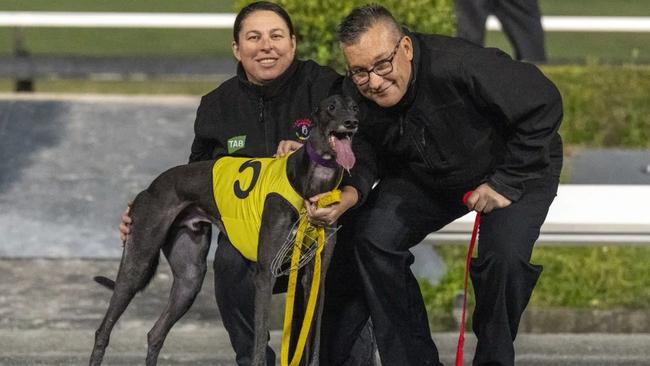
Stewards found the permanently banned drug testosterone propionate in two of the greyhounds she trained on three occasions.
Griffiths, who has been training greyhounds for two-and-a-half years, was found to have violated Greyhounds Australasia Rules 139(3)(a) and 141(1)(a).
Given the seriousness of the charges, particularly involving the permanently banned substance, three concurrent 12-month disqualifications were placed on Griffiths.
They also disqualified her dog Newton Hayze from several races between May 20 and July 4, and ordered the return of all associated prize money to Racing Queensland.
Wiangaree-based greyhound trainer Colin Graham was fined $1500 with $1000 of that conditionally suspended for 12 months for doping his dog Sweetest Smile with dexamethasone.
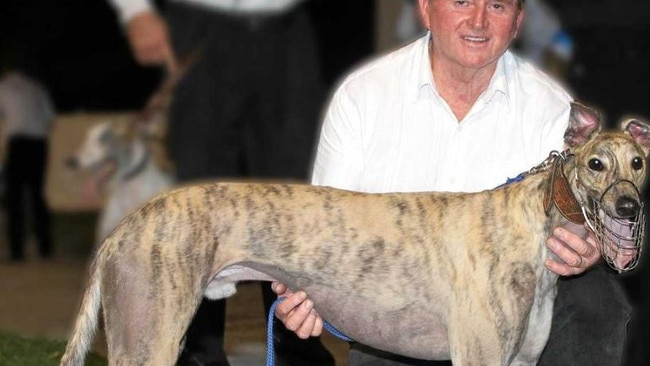
Stewards found the substance in a urine sample collected before a race at the Brisbane Greyhound Racing Club on August 22.
Graham, the licensed trainer, pleaded guilty to the charge with Sweetest Smile disqualified from its second-place finish in the race.
This month, QRIC stewards imposed an interim suspension on Yamanto trainer Peter O’Reilly after detecting the banned substance hydrocortisone in a post-race sample from his greyhound, Get Carter.
The sample, collected after Get Carter competed at the Brisbane Greyhound Racing Club on 1 August, was found to exceed the permitted threshold for hydrocortisone, a substance permanently banned under Greyhounds Australasia Rules.
O’Reilly’s Trainer Class 2 Licence, Breeder 1 Licence, and Owner Registration were suspended pending the outcome of an ongoing inquiry.
Stewards took action due to the serious nature of the violation and the permanently banned status of hydrocortisone.
O’Reilly was notified that any transfer of greyhounds under his care would require Stewards’ permission during the suspension.
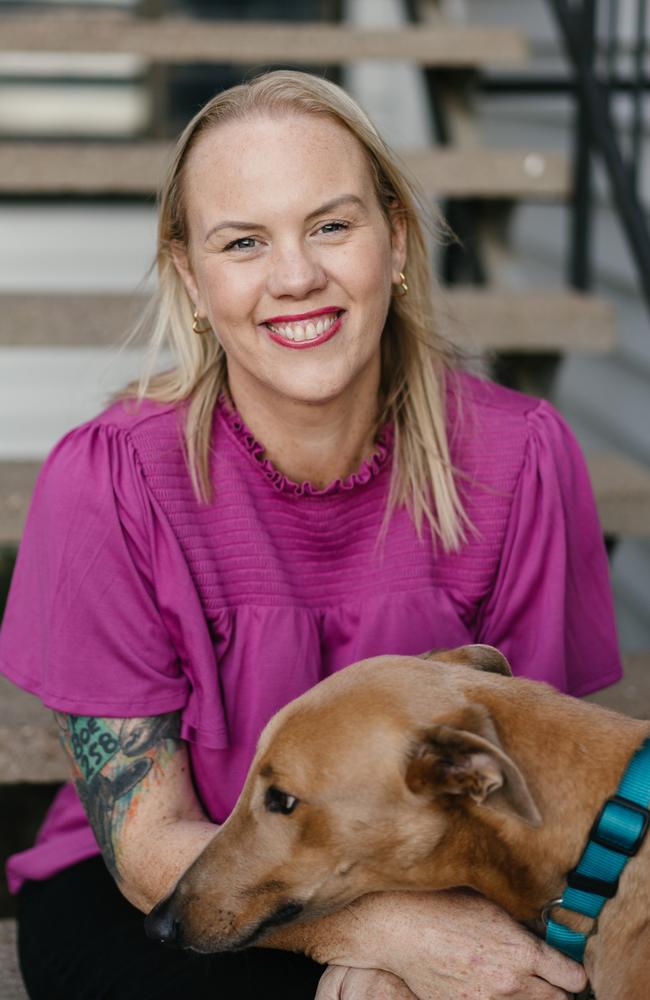
AnimalKIND campaign manager Amanda Holly said it was particularly disturbing that the fines and suspensions did not reflect the severity of the offences or act as a sufficient deterrent.
She said the industry would need to clean up its act before The Q, the $39 million greyhound racing venue opened at Purga at Ipswich next year, even though she does not support any form of greyhound racing.
Ms Holly said the worst case was of trainer Lawrence Topping who stewards found guilty of using two different drugs in two different cases within the four-week period.
“The planned $39 million greyhound track in Ipswich, The Q, has now ballooned to an $85 million expense and Racing Queensland can dress it up as a welfare-focused facility but the truth remains: there’s no such thing as a safe greyhound track,” she said.
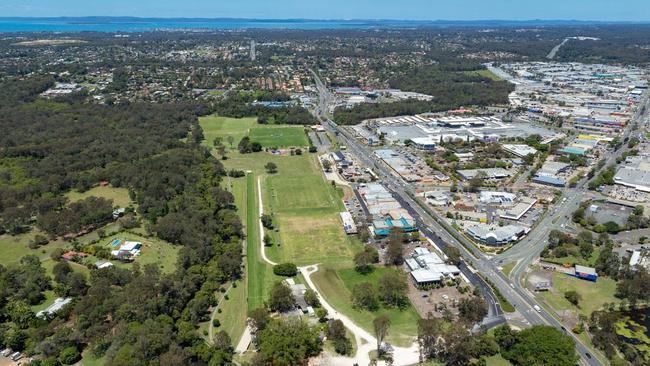
“Every race puts dogs at risk of injuries like broken legs and head trauma, and countless others endure stress, neglect and abuse behind the scenes.
“Instead of doubling down on the industry this money could be better spent on holding trainers truly accountable, with criminal charges and iron-clad bans, or this industry will continue to exploit these animals.
“This is a deeply broken system that puts profits over the welfare of innocent animals.
“When trainers like Lawrence Topping can repeatedly drug greyhounds with dangerous substances like cobalt and face little more than token fines and minimal suspensions, it’s clear QRIC’s approach is failing miserably.
“Cases like Myra Griffiths, who doped multiple dogs and walked away with a single, watered-down punishment only highlight that these penalties are simply a slap on the wrist and not a means to deter future violations.”





